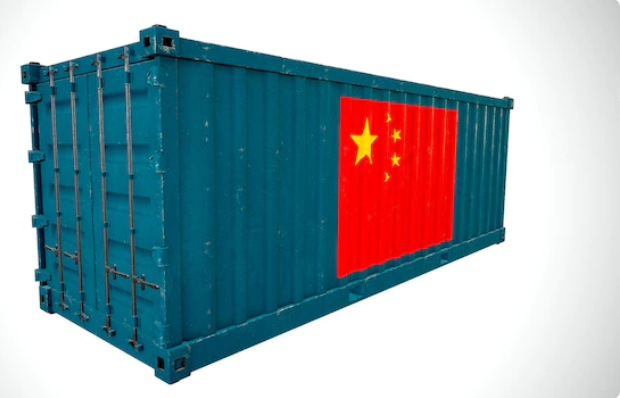
In order to thrive within your respective industry, it’s essential to establish a mutually beneficial relationship with your supplier. When striking up a deal, it’s important to appreciate there’s always room to negotiate favorable terms.
Many companies choose to source products from low-cost regions like China, where the price of the product you’re purchasing is rarely a concern. However, have you ever considered negotiating payment terms?
If not, you could be disadvantaging yourself through a simple lack of awareness of options. Though the seller has the ultimate say, that doesn’t mean to say there won’t be wiggle room to get better value on your deal.
Some opt for a 30:40:30 configuration, paying suppliers in instalments after particular terms are met; 30% down payment, 40% after a quality inspection, and 30% upon shipping. This type of arrangement will offer you peace of mind that can easily be achieved via clear communication.
Ultimately, your supplier will be relying on your custom, so will do everything within their power to satisfy your requirements. If you negotiate payment terms, you’ll indicate to suppliers that you’re prepared and well-equipped to build a fruitful relationship.
You should highlight your product expectation and shipping dates so your supplier can plan production accordingly. You’ll want to prove your readiness to engage with the sourcing project via the willingness and professionalism shown through negotiation.
Mutually beneficial payments terms will protect both parties from financial risk, cashflow implications, and provide leverage if problems emerge. Negotiations are based around choice of payment method and timing of payment, which should be agreed in advance. By doing so, you’ll avoid complications that can arise if there are delays in production and shipping.
Now, let’s break down some useful tips you can leverage to broker favourable payment terms:
Negotiating Different Terms for Samples, Trial Runs, and Mass Orders
It’s important to negotiate different terms depending on the nature of your order. When you’re exercising a sample run, you should consider putting 50% down and paying the rest if the sample is approved. The nature of this arrangement involves the supplier taking most of the risk, investing time and effort on a new product where a deal may never come to fruition.
If you are happy with the product and decide to engage in a trial run, you can safeguard your investment by paying less upfront. For example, a typical structure of 20% down and the rest paid upon shipment is common to ensure you don’t take on as much risk. For a mass order, the 30:40:30 arrangement is a great configuration for payment. By doing so, both parties will be protected, and your 30% down payment will give your supplier the resources necessary to buy materials and hire workers for production.
Having paid 70% of the total order before you’ve received your shipment, the supplier will be incentivized to stay on their toes. After all, they’ll need to remain vigilant and ensure they continue to uphold high standards to receive the final 30%. The seller will also be protected, because in the event of the order falling through, at least they will have received most of their money.
If your supplier insists on receiving payment in full prior to shipment, make sure your products have been fully inspected and meet your specifications.
Win By Negotiating Favorable Payment Terms
As a buyer, negotiating favorable terms is definitely worth the time and effort, especially when you consider the following positive implications:
Cash Flow
The less money you pay upfront, the more money you’ll have to invest in your core competencies. With more funds for the everyday running of your business, you can commit resources to activities that increase your bottom line. This is especially valuable for small businesses with a tight cash flow since you’ll have breathing room before your next payment.
Leverage
Agreeing to pay your final installment after a quality inspection gives you significant leverage. By doing so, you’ll gain control over the arrangement, since it will be in the supplier’s best interest to ensure the product they ship matches your expectations. If it doesn’t, you have the leverage to communicate with them to fix the problem, where if they don’t they won’t receive the final part of their payment.
This type of leverage is a big reason for never paying 100% upfront.
Risk Protection
By paying less upfront, you’ll reduce the risk of things going wrong later down the line. Protecting yourself from risk is a prudent business strategy that will pay off in the long run, because you can never predict the outcome of a given situation.
The Three B’s
Establishing a mutually beneficial arrangement with your supplier involves building a solid relationship with them. To obtain their trust, you should capitalize on the three B’s:
Be Upfront
With all due respect, when it comes to anything to do with your business, you should exude confidence and take command of every situation. No one knows your business like you, especially if you’ve done research to understand which products appeal to your target audience. You’re more likely to know the price point of your product, implications on cash flow, etc, so you’ll appreciate the type of payment terms you’ll need to maximize efficiency.
With that being said, when you import from China, you should put yourself in the driver’s seat and be upfront about what you need. By doing so, your supplier can work on meeting your terms, investing time wisely into production to quote realistic prices.
Being upfront will avoid the inconvenience of deals falling through, which can be a nightmare for both pirates involved. Being upfront is often the best way to build trust with your supplier, because they’ll know what’s required of them and realise you won’t mess them about later down the line.
Be Flexible
If you’re looking to import from China to US, you should be flexible with payment terms to increase the chances of receiving a discount on your order. You’ll be surprised by what you can achieve by adopting this approach.
For example, if you have a product that’s in high demand, you could offer to pay a larger down payment in exchange for a discount on your order. This will offer a great incentive for your supplier to reduce their price, where they’ll be motivated by reduced risk and the prospect of having more cash in hand.
This is a great tactic if you’re confident in your product, having performed considerable market research to work out what’s feasible. Receiving a reduction on the price of the product you’re selling can help you generate more sales, and will ultimately improve your bottom line.
A flexible approach will help you negotiate more competitive pricing, which will help you secure a larger market share over time. By gaining your supplier’s trust in situations like this, you’ll establish a win-win scenario and gain more flexibility with them. If in future you require a special arrangement, they’ll be more receptive to your needs if you want to renegotiate different terms.
Be Patient
Building trust with a supplier can take a different approach, depending on the native origin of your supplier. For example, trust is built differently in China than in other countries, where cultural differences often arise.
With this being said, it’s important to exercise patience and try to understand the culture of the country you’re doing business with. In China, trust is earned, not given, meaning you should consider embracing positive actions over a prolonged period.
After all, actions speak louder than words, so if you negotiate in ways that benefit your supplier, you’re more likely to receive their trust. This can take time, so patience is often required.
When communicating with your supplier, you should give the impression you care about how the outcome of the deal. Offer feedback in a courteous manner, communicate your expectations clearly, pay on time, and always be a man of your word. By adopting this approach, you’ll earn the trust of your supplier and build a successful relationship.
Import with HUACI Sourcing
Building trust is no easy task, but your path to building a successful relationship can be made significantly easier by working with a sourcing agent like HUACI Sourcing. Our main ambition is to help companies successfully import goods from China in a cost-effective way, where we leverage credible relationships to add value to your business ventures.
At HUACI Sourcing you’ll receive a one-stop, risk-mitigating solution to sourcing from China, one that safeguards your best interests, prioritizing sourcing, purchasing, quality management, and shipment. Work with us today and you’ll maximize the productivity of your outsourcing requirements.
Are you a furniture importer? Click here and find out all the information related to importing furniture from China.
For more information about importing from China to UK, click here!






[…] How to Broker Favorable Payment Terms? | HUACI Sourcing […]
[…] If you want to know about how to pay factories in China, we invite you to read this guide on negotiating favorable payment terms in China. […]
[…] Payment terms […]